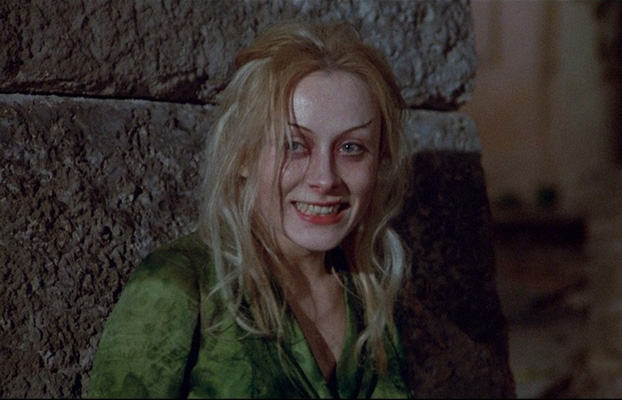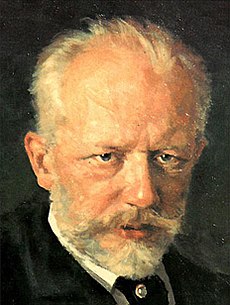OF SEX, COWARDICE AND DIPLOMACY
I know a story. It's an old story, a very old story of power, sex and influence. A man named X is a gentleman of influence. His influence, in the service of the State, allows him to nominate other indivuduals, male or female, to important posts. X is very fine, kind, polite, fairly cult, seemingly stern and firm, if the occasion calls for it. He dresses impecably, almost too classic. He's in his fifties, a man in his prime, married, children, happy about his life in general, with some occasional questioning about his first early choices, which include his wife. X is, above all, a diplomat. His position demands constant diplomacy. His thoughts are pure diplomacy, his actions are entirely diplomatic. Even the way he holds his fork, as he eats, is an act of diplomacy towards the food on his plate.
There is a woman, W. W is younger than X. She had a long hard climb, with more downs than ups. At some point in life, she understood that for a woman to evolve effectively in her career, if no other competence can be used, sex is the answer. After all, sex is the oldest trade in the world. And so easy... one loses little more than one's soul, the body can be used almost indefinetely. The gentleman X knows it too. And, when the choice is there to be made, he decides to mingle the afffairs of sex with the affairs of the State. All very diplomaticaly, of course. W gives sex to X and promises more "if....". X understands what W is asking. So, X nominates W. It's all very practical. Whenever X does business with W, he can also have sex.
The world of diplomacy is wide. Parties, get together, cultural events. X meets other women. One of them is called Y. Y is as pretty as W with an extra. She has brains, culture, knows how to dress, knows what to say, how to behave in public, how to entertain. When X thinks of Y, he wonders 'Why not?' Sex between X and Y would be delightfully casual, no strings attached. Y is not interested in climbing, she is a rather independent woman. To winn a woman with brains, courtship is needed. X has to try harder with Y than he did with W. But, then, that is part of the challenge, isn't it? A friendship begins. Now... W is not a fool. She sees how X is trying to winn Y right in front of her nose. She hates Y for trying to take away X. She makes little scenes and soaks, if she loses her sex influence over X it was all for naught.W becomes annoying, not just with X and Y, but with other people, for her lack of skills in society affairs makes her commit numerous faux-steps. She wants to be important and respected, but doesn't know how one becomes respected and important without using sex and sex doesn't serve all occasions.
X doesn't immediately understand W's fear and frustration. He's too much excited about the perspective of having sex with Y. He introduces Y into the best circles, the cream of society. He pays her dinners, offers her little presents, talks about her favourite themes and is dazzled by the fact that Y takes it all in a very unattached way. He is confused and decides to plan the night in question very carefully, in order to create the right mood. There is a grand party all people related are invited. W watches X do his final move to winn Y and becomes furious. She pulls X on the side and makes a terrible jealous scene. She insults Y hoping to lower her in X's eyes and demands him to be at her side during the grand event, making threats concerning the gravity of their common State affairs.
X had not antecipated diplomatic complications concerning sex with W when he first made the deal. And, now, he does not know what to do. He wants to keep W because he still wants to mingle the affairs of the Sate with the affairs of the sex. Besides, he's scared about the fact that W is, in fact, a woman of some influence thanks to his nomination. To make her offence openly can cause a number of complications X is not interested in having. But, he still wants to have sex with Y and tonight is the night. X wants the best of the two worlds.
Meanwhile, Y does not suspect that a tragedy is occuring right next to her, with W threatening X and X not knowing what to do. She's happy. X decides to take the diplomatic way out. He stays with W for a while and sends a message to Y saying that he has been detained by some boring affairs where W demanded his presence. He asks Y to meet him outside the bulding in half an hour to go and have dinner. He, then, tells W he is unwell so that he may leave with an excuse. W is suspicious. So she makes sure that X doesn't leave the building alone in order to meet Y outside. She finds someone to drive X to his Hotel. Despite it all, X is a diplomat. He accepts the lift and sends a new message to Y, asking her to meet him directly at his Hotel, there is a nice restaurant there, telling her he'll explain what is happpening later. At this point, Y begins to understand that X is hiding the fact that he's having dinner with her from W. She gets annoyed and is tempted to go home instead of meeting X at his Hotel. But she also thinks that everyone deserves the chance to explain, so she meets X at his Hotel and has dinner with him.
Where X is concerned, nothing too serious has happened. He is used to the games of diplomacy, sex and State affairs. The whole thing becomes rather amusing, actually, and he laughs as he tells Y what happned and how jealous W was, turning the whole situation into a cat fight. He appologises about the incident, explaining Y that W's bad temper is becoming a problem and that he offen steps in when she is desagreable to important people. When important people are not the case, he just lets her do her soaking and insulting and moves on, like that evening, where she insulted Y behind her back, what can a man do when patience runs out?. He even adds a few anecdotes to illustrate the point.
In the gaiety of dinner, wine and good food, he doesn't realise that Y is disappointed in the man he is and the way he treated her, allowing her to be insulted and making her leave in hiding to meet him in secret as if heading towards a sordid date. Where she is concerned X failed abominably in his duty as a true diplomat. In her eyes, he is nothing but a coward who wants the best of two worlds, sex with W and sex with Y, plus the affairs of the State. In order to have it, X is planning on keeping his wife at home, making W his official date at grand parties and Y his secret date after parties. X is willing to lower Y, a free, intelligent, independent woman to a backplan sex date whom he will ignore during important events so not to annoy W.
X is happy during dinner, not noticing how disgusted by him Y is becoming. When the meal is over, he invites Y to move to a more private and comfortable atmosphere, his hotel room. He wants the night to be a big night. Before they go up, he excuses himself and goes to the bathroom to take the pill. After all, he's a man in his fifties and Y is younger. When Y refuses him sex, the pill reaches its full effect. Y notices it and she also decides to act diplomatically. She explains that she is atracted to him but he is a married man with a jealous mistress attached. She wants a life free of complications. She leaves.
When she gets home she starts laughing. She remembers how X suddenly found it difficult to get up in order to say goodbye, walking her to the Hotel entrance. The pill effect was visible. But then, she feels low, durty, involved in a sordid web of sex, power and influence. Most of all, she feels that her own diplomacy was a form of cowardice too, when all she wanted was to defend her honour of a free human being, her dignity of a woman who should be respected and appreciated openly, publicly, not dragged secretly to a sordid date in hiding of a jealous mistress, a little woman with no manners or finesse.
Diplomacy, Y thinks, is quite a dangerous posture. It quickly becomes the excuse for cowardice and hyprocrisy. Of sordidness. The dark side of the Earth. No more.
/cdn.vox-cdn.com/uploads/chorus_image/image/55912143/0_kXdv9SWRQaev1ic0.0.jpg)




















_Goya.jpg/220px-Capricho25(detalle1)_Goya.jpg)

00-36-51.jpg)


